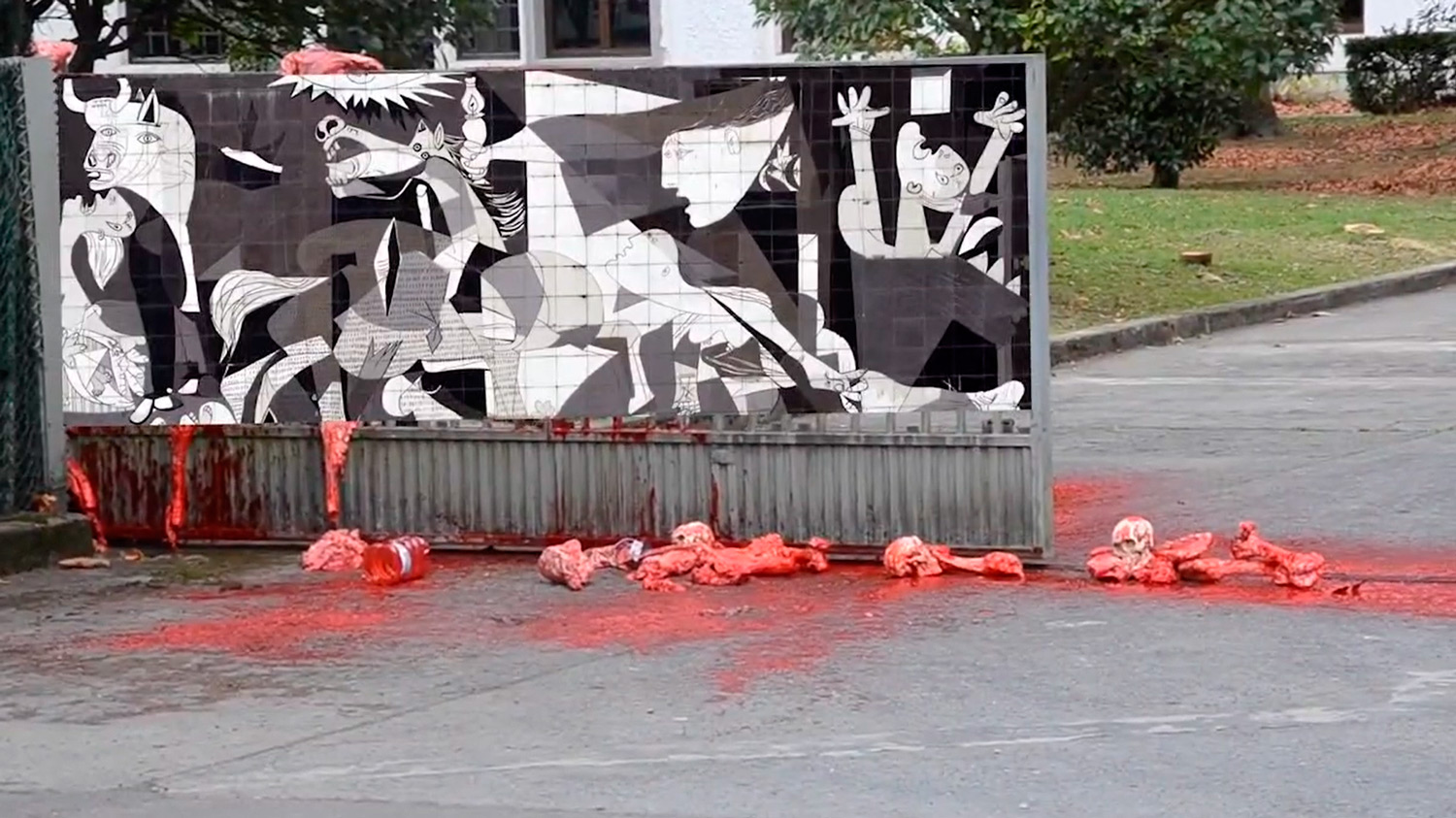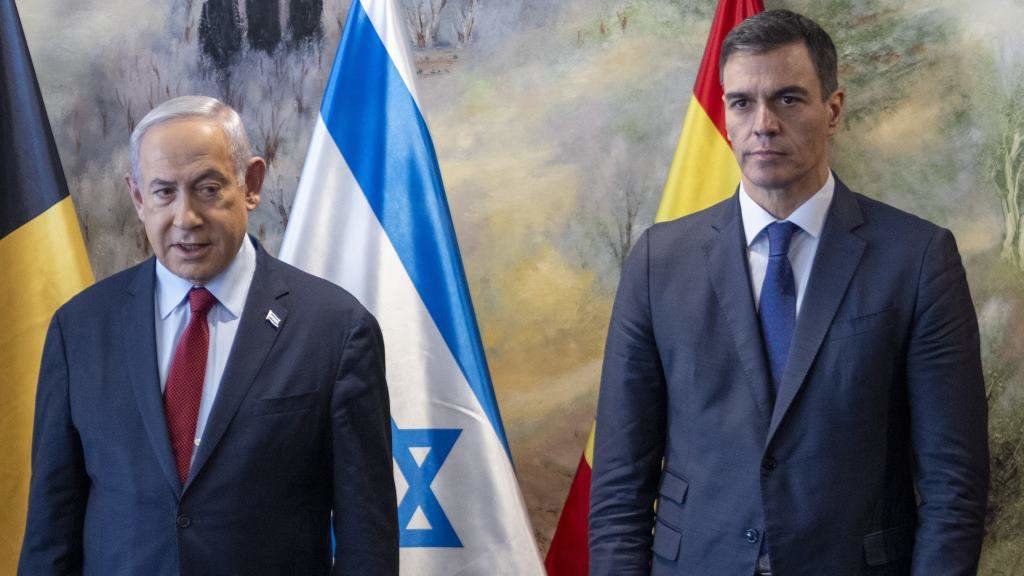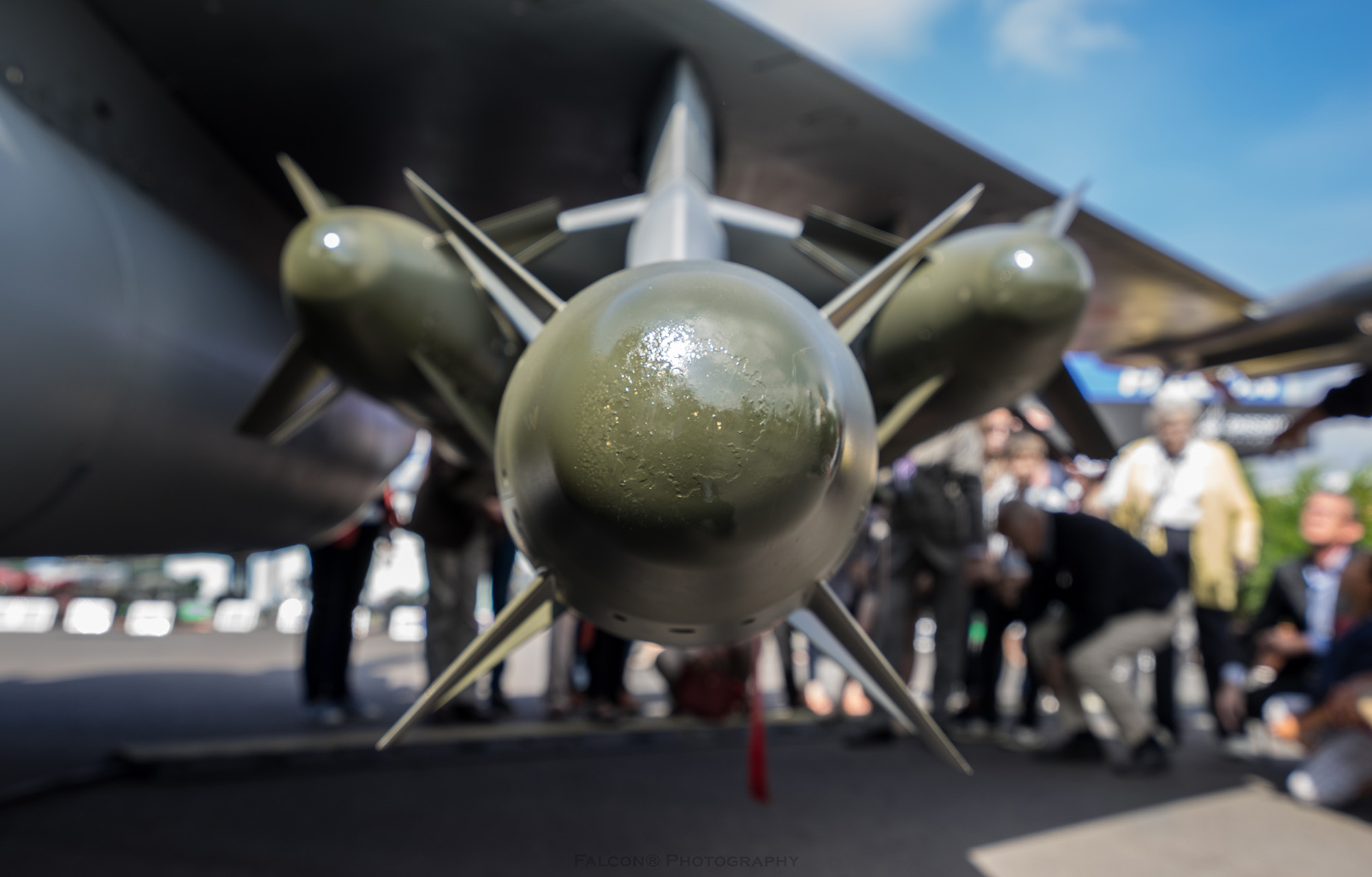New war generating Basque military industry: Example of Satlantis
- Almost a year and a half ago, journalist Ahoztar Zelaieta published the most unknown face of the company Satlantis. Satlantis presents us as a star of Basque companies that are recently emerging in the field of technological innovation, but The Basque company for border surveillance developing the European military infrastructure (Basque company to preserve the borders developed by the European military infrastructure), published by El Salto, focused its military activity: its deep involvement in the sectors of social control and the arms industry, its relationship with the Basque administrations. On this basis, in this report we will delve into other aspects related to Satlantis, which we believe is a good example of how a part of the Basque military industry acts today.
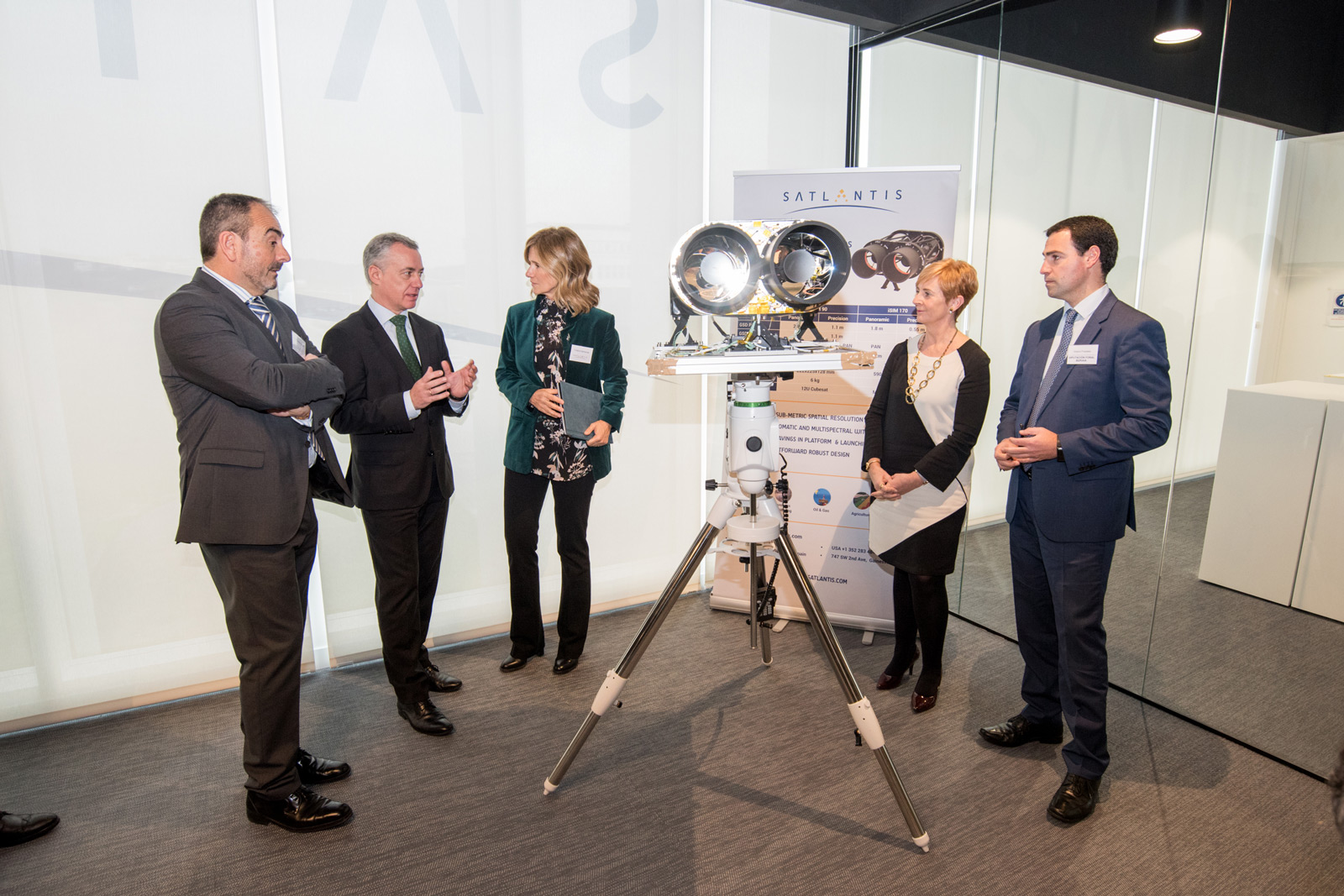
The Basque military industry is increasingly contributing to the wars that are on in the world starting here, as the devices that make them possible are manufactured here. We have recently begun to reform the list of Basque companies involved in the armero sector, and the data are alarming: at the moment we know that more than 200 have been doubled, and we suspect that at the end of the review we will have to say that they have tripled.
The main question we want to answer about Satlantis is how is it possible that a company set up in December 2014 has obtained seven years later new shareholders who have invested tens of millions of euros, who have benefited from subsidies from all public administrations, who are coordinating the European Union’s defence programmes or buying companies and who are opening subsidiaries in different areas of the world?
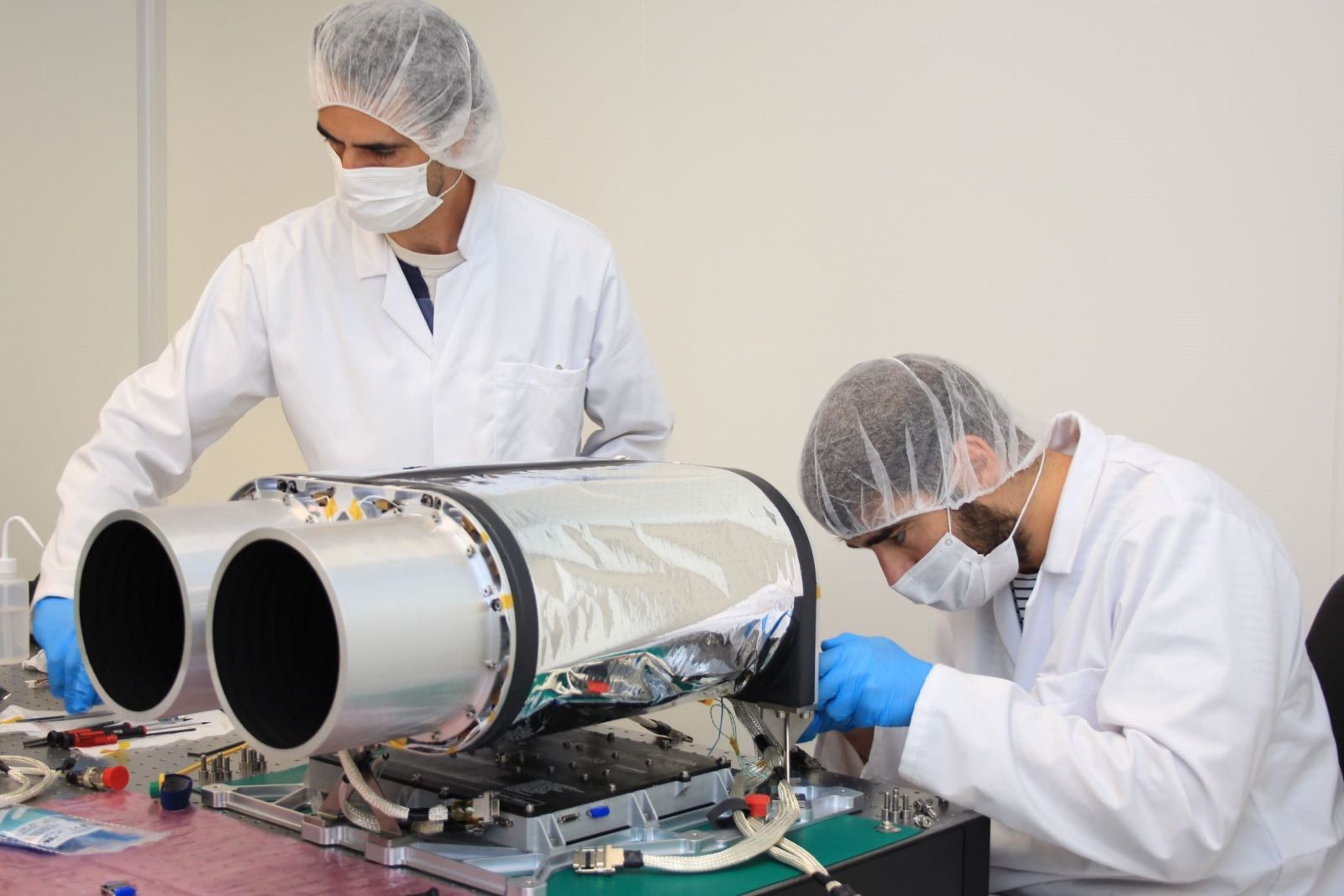
Public to private
Let us first get to know the three founding partners of Satlantis. Rafael Guzmán, professor of Andalusian astrophysics at the University of Florida and inventor of the technology that will make Satlantis famous: iSIM, camera with “high precision” images, “for satellites orbiting 500 kilometers with submetric photographs (pixel less than a meter).” But researchers with large projects are many, and the most common thing is to stay on the road. Where is the key for Professor Guzmán to thrive? The other two founding partners in the Commercial Register. On the one hand, Donostiarra Cristina Garmendia, former Minister of Science and Innovation of the Government of Spain, recently appointed president of media giant Mediaset Spain (Telecinco, Cuatro) in the second term of José Luis Rodríguez Zapatero (2008-2011), among other positions. On the other hand, bilbaíno Juan Tomás Hernani Burzaco, Secretary of State for Innovation at the orders of Cristina Garmendia and Executive Director of Satlantis since its foundation.
We do not know whether all these contacts between public associations, ministries, private companies and senior officials can be called revolving gates.
The origin of all this must be found in 2011, as Hernani himself explained in an interview. The then minister of Zapatero, Garmendia, met Professor Guzmán and his project on an official trip. Later, Garmendia contacted Hernani and SILO Science & Innovation Link in Guzmán. SILO is a consulting company created in 2012 in order to "drive innovation through private public partnerships", as you can read on its website. With the role of "incubator" that drove Satlantis, he became a founding partner and achieved representation on his board of directors.
Two important details. First, who was one of the founders of SILO? Cristina Garmendia. Garmendia left the SILO board seven years later, in 2019, when her daughter Teresa Itziar Celaya Garmendia entered the same day and in 2014 husband Rubén Celaya Martínez continued on the board. Secondly: Among the founding partners of SILO are also Antonio López and Diego Moñux, advisors of the Garmendia cabinet during his term as minister. López later joined the Satlantis Management Board in 2015. And Moñux also shared a seat with Hernani on the board of the public body of the Government of Spain that promotes research and business development at the CDTI (Center for Technological Development and Innovation). In fact, it is an institution under the Ministry of Science and Innovation.
Summarised: Garmendia and Hernani are ministers and senior officials of the Ministry of Science and Innovation from 2008 to 2011, respectively. In 2014, the company Satlantis (together with Professor Guzman) was created thanks to the impetus of the consultancy SILO, which is incorporated into the Satlantis Management Board. SILO was founded in 2012 by the minister himself and the advisors of the same ministry, Antonio López and Diego Moñux, among others.
We do not know whether all these contacts between public associations, ministries, private companies and senior officials can be called revolving gates. Or perhaps another term should be sought when a minister and a significant part of his cabinet begin to receive the economic and political support of the institutions immediately after the creation of a company.
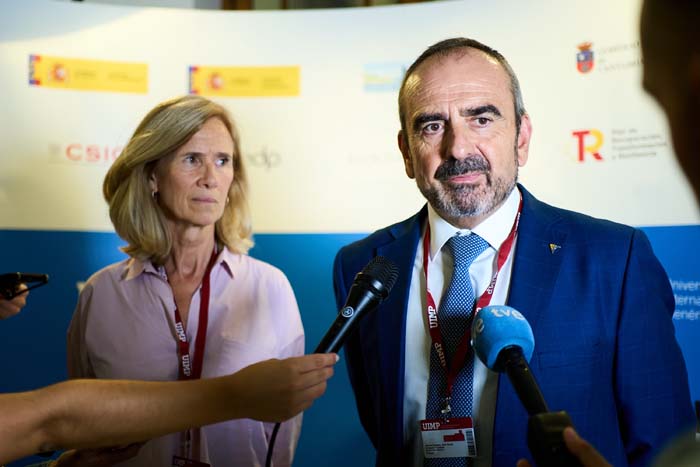
Cristina Garmendia Mendizabal (Donostia 1962)
The text holds a degree in Biological Sciences and a PhD in Molecular Biology. It also has corporate management titles.
He was Minister of Science and Innovation of José Luis Rodríguez Zapatero during his second term (2008-2011). It has a broad curriculum in the management positions of companies, among others: Member of the Board of the Bankinter Innovation Foundation (2006-2008); Executive Advisor of the Innobasque Directorate (2008); Counsellor of the Everis (2012-2019); Founder and Counselor of SILO (2012-2019); Counselor of Natural Fenosa (2015-19);
In 2008 he received the San Sebastian Gold Drum.
Juan Tomás Hernani Burzaco (Bilbao, 1961)
TextEs Industrial Engineer by the School of Industrial and Telecommunications Engineers of Bilbao. He is an economist at the University of the Basque Country. Guest research professor at the University of Florida.
He was Secretary-General of Innovation of the Ministry of Science and Innovation, under the orders of Cristina Garmendia and President of the Center for Technological Development and Innovation of Spain (CDTI) between 2008 and 2011. In the business field: Director General of Internationalisation of Innobasque (2006-2008); Founder and Director of Eurobulence; President of the European Association of Young Space Enterprises (YEESS); Coordinator Advisor of Dominion; Founder, Advisor and Director-General of Satlantis from its inception in 2014 to the present day.
Public grants and political support
Satlantis was born in December 2014 and in less than two years he managed to raise 2.3 million euros for his project. On the one hand, thanks to brilliant private investors like Elecnor, Idom, Telefónica or Everis-NTT. On the other hand, the investments of state and autonomous public institutions and bodies such as the Basque Government and the Provincial Council of Bizkaia. Also thanks to the participation of Orza, investment entity of the pension funds Elkarkidetza and Geroa. That is to say, directly or indirectly (through taxes or pensions), a large part of the Basque population is defending from almost the beginning this new star of the Basque military industry.
Garmendia, Hernani and those responsible for Satlantis know how to move in public space, not just in search of money. By March 2017, lehendakari Iñigo Urkullu and counsellor Arantxa Tapia made a public visit to the company’s offices in Getxo. Months later, Satlantis announced an agreement with the Euskadi Technology Parks network for the installation of a 640 square meter plant in Leioa, Scientific Park of the UPV/EHU. The workshop was officially opened in January 2019, with Urkullu and Tapia again. But Satlantis' relationship with his military production with the UPV/EHU goes further, as can be read in a separate table.
In 2021, Satlantis again sought new investors, reaching the €16.5 million that had been targeted by the end of the year, thanks, once again, to public-private partnership. The CTDI purchased EUR 2.5 million in shares, remembering that some of Satlantis’ drivers were in charge of this public institution in the Spanish State. The rest of the millions were provided by the public companies (Minsk – ICO and SEPI of the Government of Spain), the investment companies Orza mentioned above and by the private company Enagas.
In April 2022, Satlantis received new investments amounting to EUR 24 million. The 2021 investors to which the Provincial Council of Bizkaia joined were repeated. But then the main investor was the US company Encino Environmental Holdings. In fact, the investment would focus primarily on the momentum of the US subsidiary of Satlantis (Satlantis LLC).
UPV/EHU and armaments
In November 2017 Satlantis announced an agreement for the installation of a 640 square meter plant on the grounds of the UPV/EHU in Leioa. A few months earlier, in May 2017, the Bilbao Engineering School of the UPV/EHU and Satlantis signed a five-year collaboration agreement which, among other things, sought to "promote the exchange and contrast of ideas between the school and the technology company for the development of common projects".
The Director General of Satlantis, Juan Tomás Hernani, is very clear: "Of course, being close to the university opens the doors to the youngest talent, and to that talent we give it the opportunity to enter the company quickly (...) we receive scholarships from the Basque Government, we send four young people to Florida and then those same people entered Satlantis (...) we have now opened a new chapter with the field of Vocational Training", you can read in the website of the Bizaia. It is not surprising, therefore, that in 2023 the public company Ingeniera de Sistemas para la Defensa (ISDEFE), in the 1st edition of the Defiance Prize, opted for communication as a winner by one of these former students of the Bilbao School of Engineering (in the work of Satlantis that had been years): New Satellite Generation with Disruptive Optical and Thermal Technology for Defense and Security (New Satellite Generation with Disruptive Optical and Thermal Technology for Defense and Security). The prize was awarded by the Director-General of Admiral for Armaments and Materials of the Ministry of Defence.
It is a good example of relations between defence technology companies, Basque institutions, universities and research centres and the Ministry of Defence. Today it has become a feature of the entire sector of the Basque military industry.
Everis
Let's go back for a moment to the initial investors of Satlantis. The presence of a private company caught our attention: Everis (now NTT Data) is a group of companies that have been working in the military field since 2010 through the company Everis Aerospace Defense (Everis ADS). Well, Cristina Garmendia has been a member of her board of directors from October 2012 to August 2019.
Everis ADS has a long history of selling military equipment, some of which are particularly striking. Let's look at two examples. The newspaper Periodico de España published that in 2017 it sold mortars and ammunition in Alakra the United Arab Emirates and Saudi Arabia for 117 million, despite the resolutions of the UN and the European Parliament that have demanded since 2016 not to sell arms to Saudi Arabia for massacring the civilian population during the Yemen war. On the other hand, in March 2024, some workers of the company reported that "among the companies that have sold arms to the State of Israel for years, is the NTT Data (formerly Everis), which serves to murder thousands of Palestinian children".
In January 2023, Satlantis acquired business in the space of Defence and Earth Observation to Everis, after receiving approval from the Spanish Ministry of Defence, the European Space Agency (ESA) and the European Commission. Juan Tomás Hernani, head of Satlantis, said that the purchase brought with it the "drive" of Satlantis before the "European Defense Fund and the ESA".
.jpg)
The military market as the engine of Satlantis
In fact, the expectations that Satlantis’ developments generated in the military sphere, the EUR 7.9 billion announced for the European Defence Funds and the warlike noises of much of the world, caused the company’s leaders to decide to go deeper into this sector.
It started to enroll in the EU-funded European defence programmes, coordinating the Nemos programme, "with multifunctional competences, including space-based monitoring and monitoring". The consortium of nine companies from five countries that met for this programme defined that it "intends to establish cooperation between the participating institutions and countries in order to strengthen European defence and security capacities". Satlantis has also coordinated the Optisse programme and participated in the Spider European Defence Funds programme. The objective of this programme is to improve the network of satellites geared to intelligence, surveillance and inspection.
“American investment from NASA and the Department of Defense is excellent news because they are supporting our plan” (Juan Tomás Hernani)
In 2021, Atlantis joined the TEDAE (Asociación Española de Tecnología de Defensa, Seguridad, Aeronáutica y Espacio). Its business area is based, among other things, on the monitoring of "critical infrastructures and/or limitations". In the same year he participated in the FEINDEF, the arms trade fair in Madrid. He participated in a round table on Defence and Space Technology, together with the Spanish top military leaders and representatives of the major companies in the sector, such as Indra and Sener of the Basque Country.
As we have seen, in early 2023, Satlantis bought Everis the area of Defense and Earth Observation. A few months later he attended the SpaceOps fair in Dubai, with a stand under the slogan Satlantis Defence & Security. The company also reported its inclusion in the "British defence" during these weeks, although it did not specify in which project or programme. At the end of the same year, an alliance was established with Airbus to develop the satellite observations of the Spanish Ministry of Defence. These satellites, they explained, “allow us to work on military recognition and surveillance issues, so we can have very advanced capabilities to identify targets, monitor military movements and gather strategic information on defence operations.”
Cold War and Western Defense
In April 2022, Atlantis CEO Juan Tomás Hernani said in El Correo that we are in a "New Cold War in Defense" and that his company has decided to serve the "western side". In this regard, and following his experience with the Pentagon to facilitate "surveillance and surveillance from space", a month later, he pointed out in Deia that "the American investment of NASA and the Department of Defense is excellent news, because our plan is being supported". As a result of this commitment, among others, Satlantis LLC named Sean O'Keefe, president of the US subsidiary. O'Keefe was secretary of the U.S. Navy and George H. W. Chief Financial Officer of the Bush Interim Defense Department.
In short, it is clear with what priorities the managers of Satlantis run their business. This was summarized by Hernani in the newspaper El Correo in April of the same year (as can be seen, the usual and cordial treatment of some media is another of the key strategies of the normalization of the military industry): "In defense there is a very clear thrust. (...) Development will depend on the rings marked by governments. First defense, security, border control."
Transforming or continuing to drive wars
It is important to reflect on who, how and for what purpose they create the warring spiral that we live today. In the mid-decade of 2010, the European Union announced the opening of its funds to finance "defence" programmes. In the Basque case, the current arms race began, which has since multiplied the number of companies involved in military production. And Euskal Herria is no exception.
It is important to reflect on who, how and for what they create the warring spiral that we live today
The merchants of death began to invest in new and sophisticated systems of devices and armaments, for which they were publicly funded: an increase in military spending, the impetus of political and educational classes, and the predominance of complicit or unknown silence of the workers of the sector and of the citizens. To close the vicious circle and guarantee the benefits of these merchants, there was only a lack of war, insecurity and fears. And that's where we are.
Satlantis is an example of this new escalation of military production that condemns us to war. In this race, as we have seen in your case, those who control the inconveniences of administrations, research centres and centres of power, and those who, despite their scientific or academic nature, have no scruples, play with a clear ventaja.La war begins here, in
each of the Basque companies involved in this production, and before the outbreak of the following wars:
If we want to stop, before falling back into impotence, the road seems clear: to put an end beforehand to the industry that builds those wars and the traders that profit. There are alternatives to the military industry and wars. The transformation of military production into civilian production that meets social needs would be a good start. The anti-militarist movement has been raising this issue for years. It's urgent to develop these alternatives... as it's a matter of life and death.
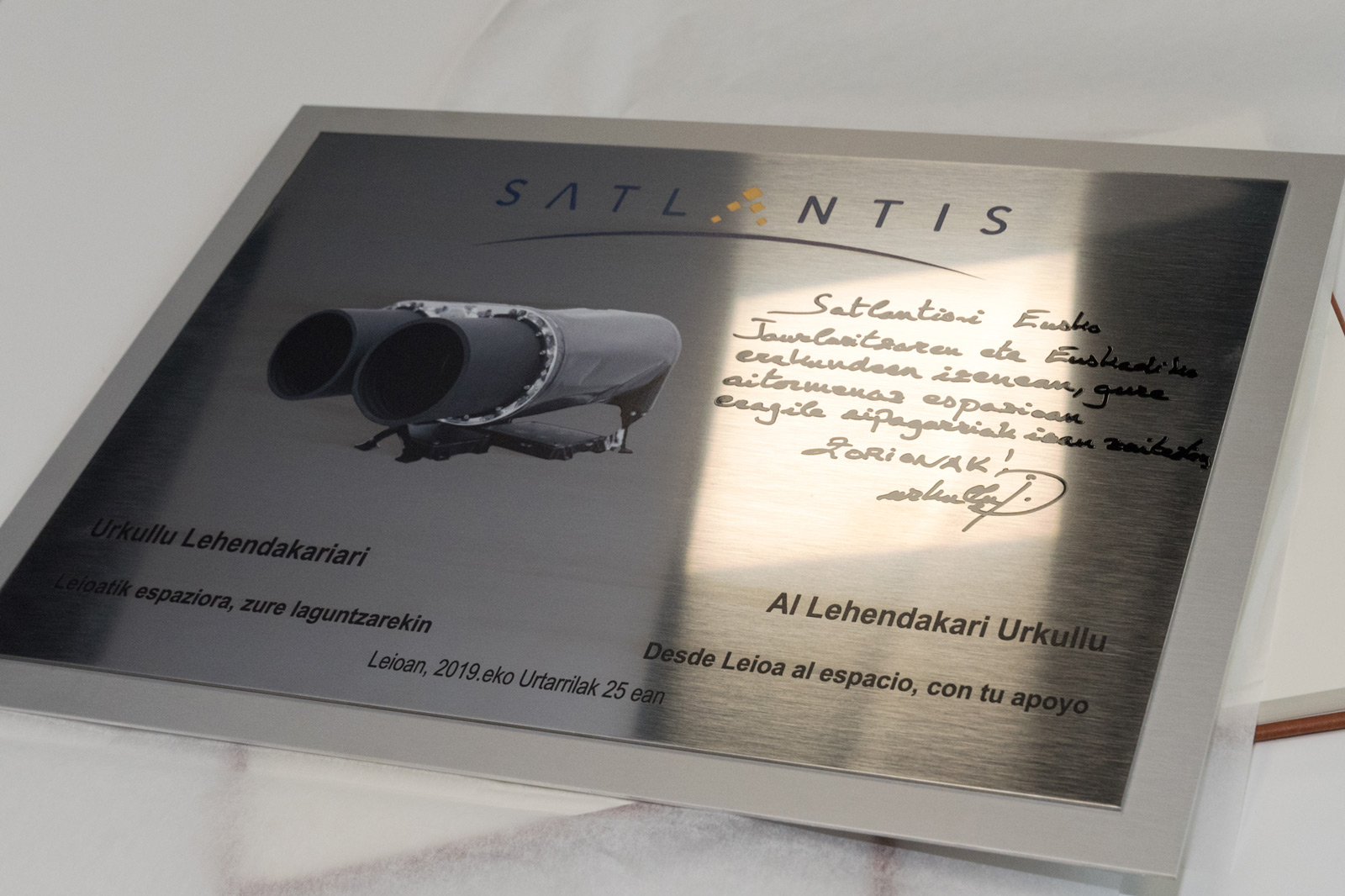
When we read in ARGIA the article "Children, Police, Micronutrients", we felt very identified with what the vitorians are living in the antimilitarist group in relation to social militarization. Recently, from different local groups and platforms, we have been asked for data on... [+]
It seems that everything is under control, that they know how to make us believe everything, that we never do what we want. As if we live in a constant announcement, we say ‘equal opportunities’, and we think we are saying ‘equal opportunities’, or the PSE says plurality... [+]
I don't know what atmosphere there is in the south of the Bidasoa, but at least in the north is the word "war." In the orders of December 31, 2023, President Macron could seven times correct the word "rearmament." They say that we need to channel the ‘war economy’, and that is... [+]
It has been two years since Russia officially invaded Ukraine and everything points to Russia being brought forward to Ukraine. Russia has been able to take advantage of the war industry to devastate the country’s economy, to seek a new way out of its energy resources and to... [+]
“Basque companies sold products worth almost EUR 200 million to Israel in 2022 at the level of Australia or Canada.” “Turnover of around 300 million is expected in 2023” (Eustat). "In the Middle East, Israel is a priority learning partner" (Government 2020... [+]











